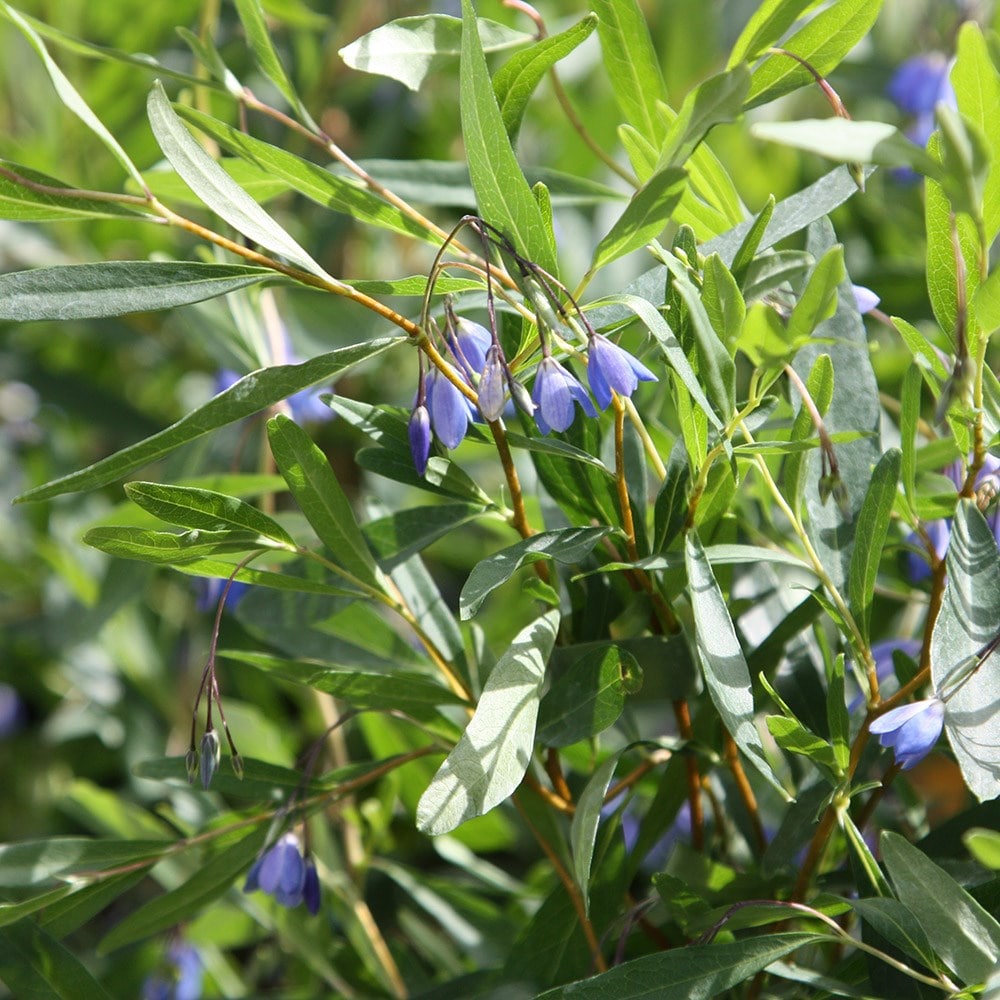
Buy bluebell creeper Sollya heterophylla £24.99 Delivery by Crocus
Bluebell creeper (Billardiera heterophylla formerly Sollya heterophylla) is a familiar plant in western Australia.It is a climbing, twining, evergreen plant that has the capacity to become invasive in other warm regions. If carefully managed, the plant makes a nice addition as an understory plant, with good frost tolerance once it's established.

Sollya heterophylla (Australian Blue Bell Creeper) 15 seeds £1.99
Blue Star Creeper Care Blue star creeper is an easy plant to grow, requiring little ongoing maintenance once established. It does best in a location that receives bright dappled shade but will also tolerate full sun, especially in cooler regions. Soil ideally should be kept consistently moist if possible.

The Bluebell Creeper and Botanical Classification Botany Karen
Sollya heterophylla - Bluebell Creeper A twining shrub which can grow to 4 metres tall with support. Grown on its own it forms a dense shrubby habit. It has clusters of pendulous blue flowers from spring through summer. There are also selections with white or pink flowers, and ground cover forms. Grows in sun to part shade.
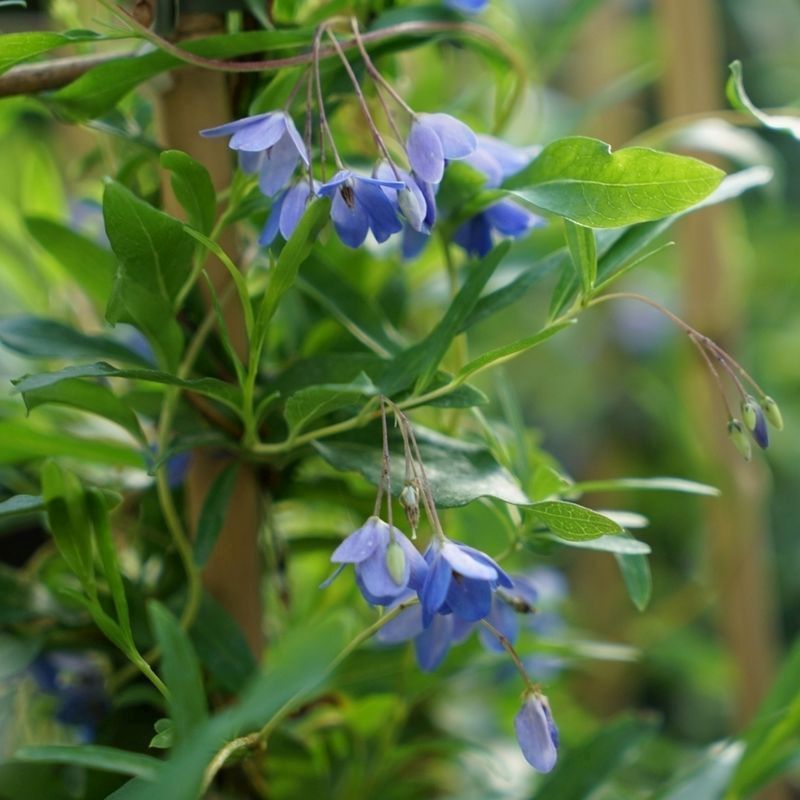
Buy Australian Bluebell Creeper, Sollya Heterophylla Single Established Plant Online at
Sollya heterophylla is a broadleaf evergreen shrub, vine or groundcover with green foliage and blue flowers in spring, summer and fall followed by blue and purple fruit. It can grow 4 FT - 6 FT - wide, 4 FT - 6 FT - tall. It contributes glossy texture to the garden. To grow well, it prefers sun - mostly shade and regular water. Grows best in well-drained, rich and average soil. #spreading, #.

Sollya Heterophylla Bluebell Creeper Plant & Nature Photos Jules's Photoblog
Sollya heterophylla grows 2-3 feet tall and about twice as wide as a shrub but the Bluebell Creeper can easily be trained up a trellis or pole. Much of the blooming potential is lost if the plants are sheared. Sollya heterophylla plants are hardy into the mid to low 20°s F. Blue bell shaped flowers of Sollya heterophylla - Bluebell

PlantFiles Pictures Bluebell Creeper, Australian Bluebell (Sollya heterophylla) by wallaby1
This is an evergreen, twining climber that has made its way as an ornamental plant from Western Australia into our gardens. It is also commonly known as the Australian Bluebell or Climbing Bluebell. It has a Royal Horticultural Society Award for Garden Merit (AGM). Latin Name Change
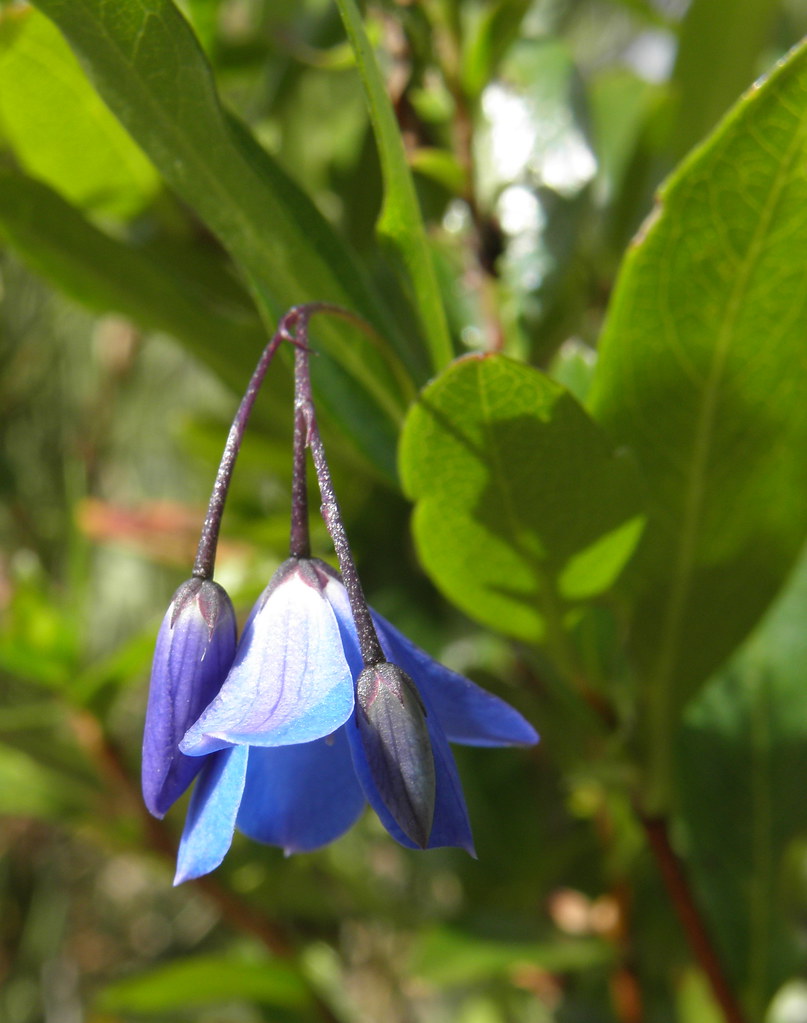
Sollya heterophylla Australian Bluebell Creeper A fine pla… Flickr
Billardiera heterophylla (formerly Sollya heterophylla) is a species of flowering plant in the family Pittosporaceae, known by the common name bluebell creeper. [2] It is native to Western Australia, but is grown as an ornamental plant in appropriate climates worldwide.
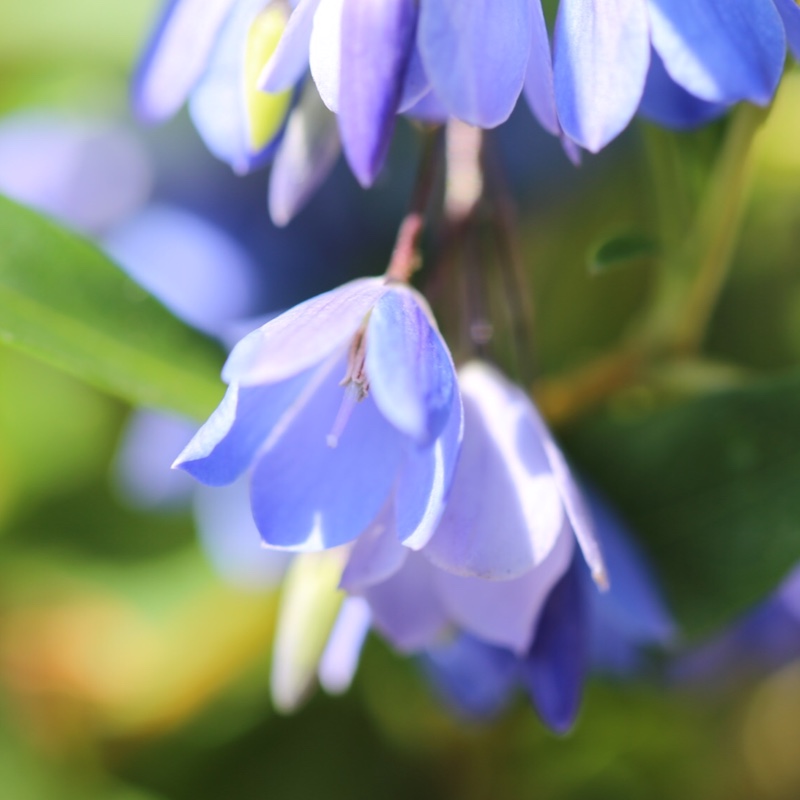
Billardiera heterophylla syn. Sollya Heterophylla, Sollya fusiformis, Bluebell Creeper in
2 m View More Info Find your perfect green friends. Plan your green oasis based on your criteria: plant type, pet safety, skill level, sites, and more. Download the App Plants with Same Care Needs China rose The china rose (Rosa chinensis) is a Southwest China native.
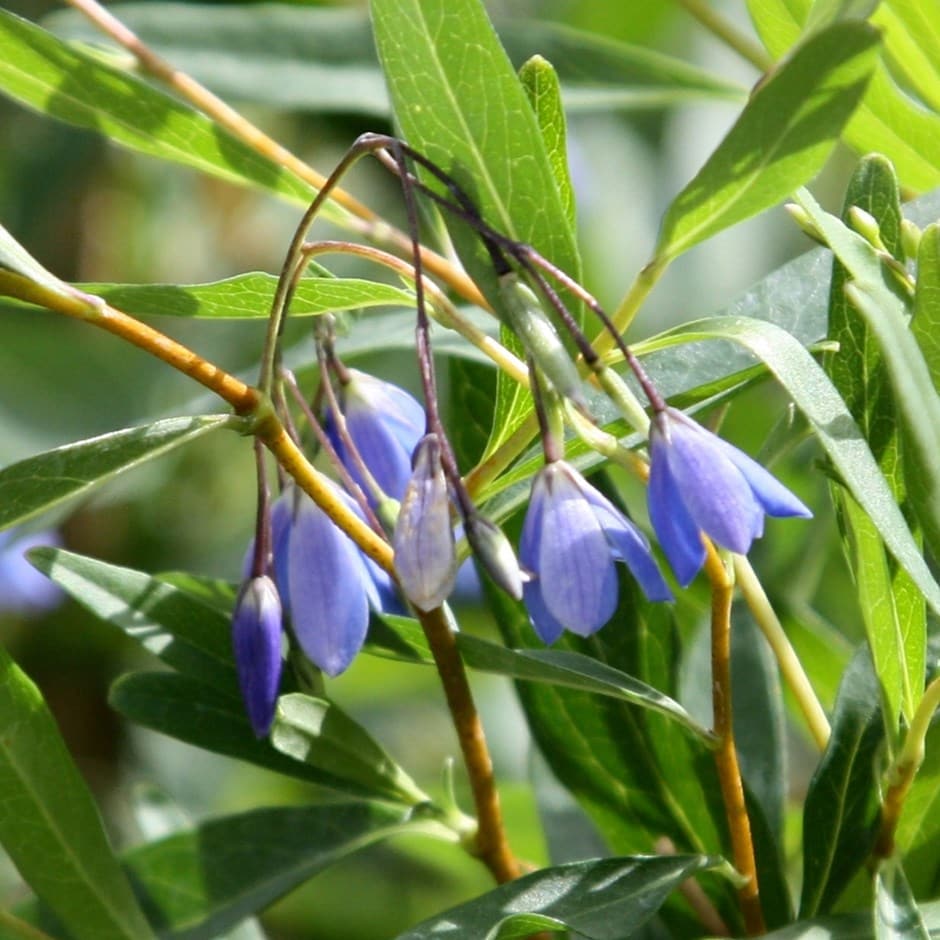
Buy bluebell creeper Sollya heterophylla £17.99 Delivery by Crocus
Bluebell Creeper ( Billardiera fusiformis) Image Posted on November 6, 2019 by Weeds of Melbourne Bluebell Creeper (Billardiera fusiformis), a Western Australian climbing shrub that has become a catastrophic success story following introduction to southeastern Australia as an ornamental native plant.

What Is Bluebell Creeper Australian Bluebell Care And Information
Quick and easy to grow Unusual evergreen climber ideal for planting into pots Awarded an RHS Award of Garden Merit Delivery Information View Product Description Choose available pack sizes: Add To Basket Frequently bought with Select to add to basket 70 Litres + 210g Pack Of Incredibloom® - £19.99 1 x 750g Pack - £10.99 1 x 150g Pack - £8.99
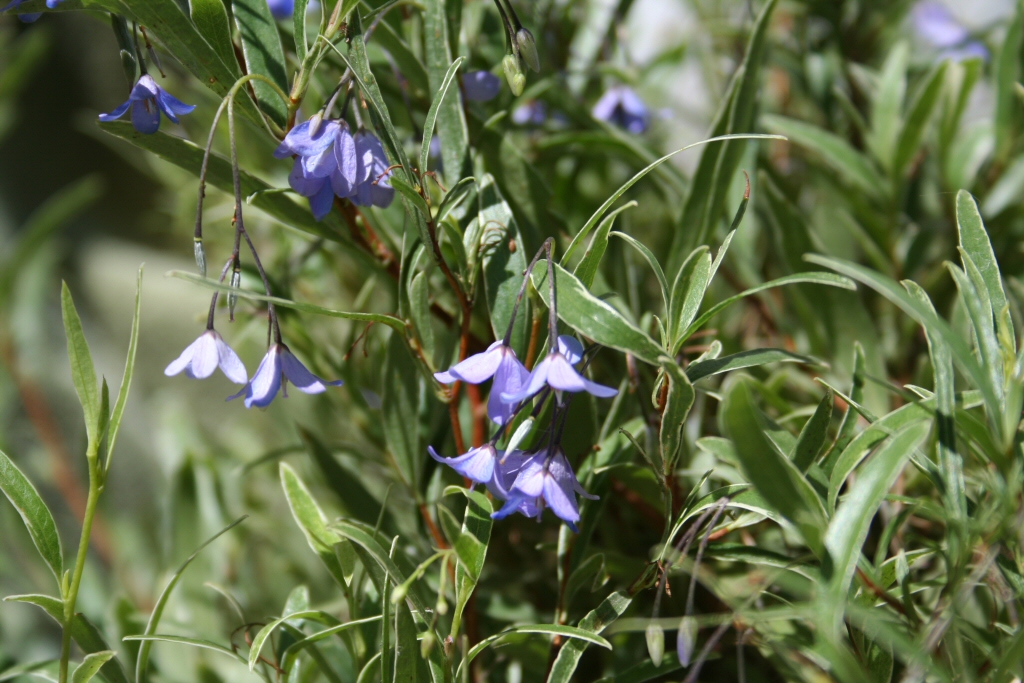
Sollya ‘Edna Walling Blue Bells’ Bluebell Creeper Gardening With Angus
The Wildlife Trusts report: 'The UK's woodlands are home to almost 50% of the world's population of the bluebell. But this much-loved plant is under threat. The Spanish bluebell is more vigorous.
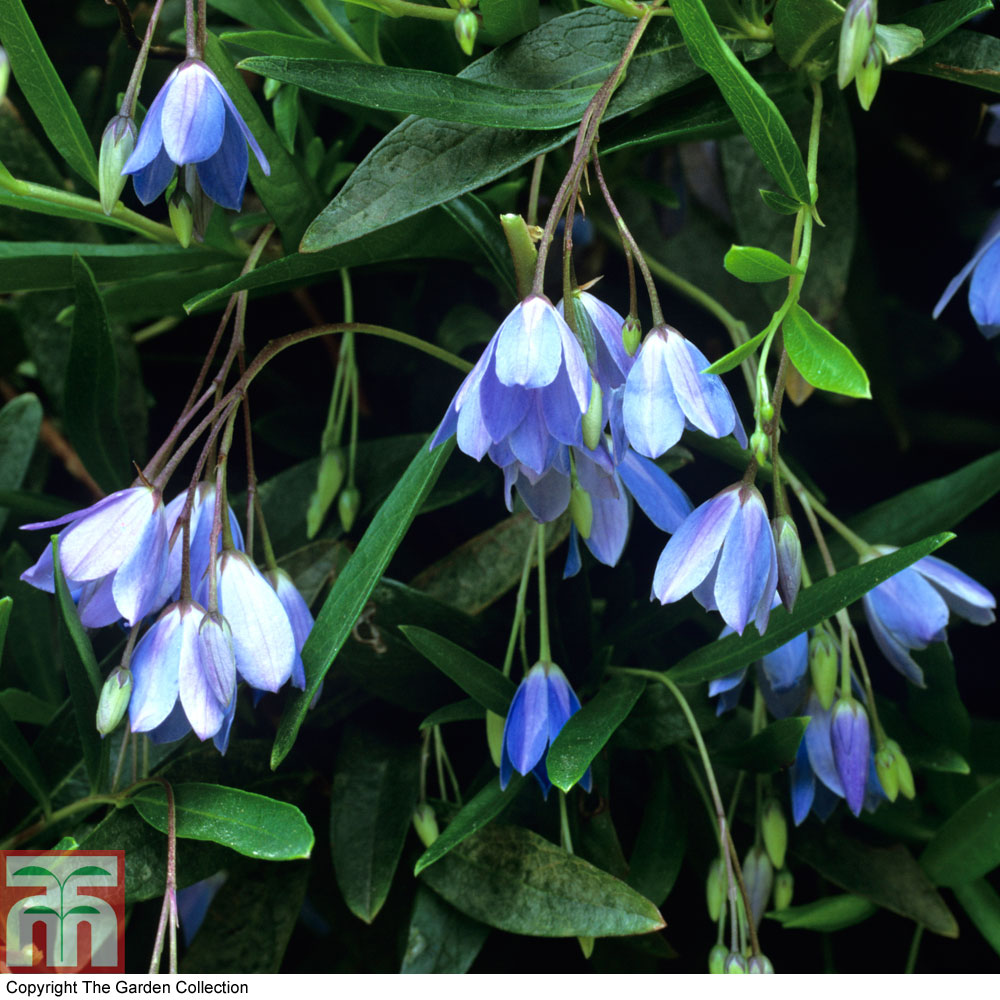
Billardiera heterophylla syn. Sollya Heterophylla ; Sollya fusiformis, Bluebell Creeper in
Bluebell creeper, Sollya heterophylla, is native to Australia. An evergreen climber, it bears lance-shaped, fresh green leaves and contrasting pretty, blue, bell-shaped summer flowers, followed by edible, blue berries. It's perfect for training over a pergola or arch in a sheltered, sunny spot.
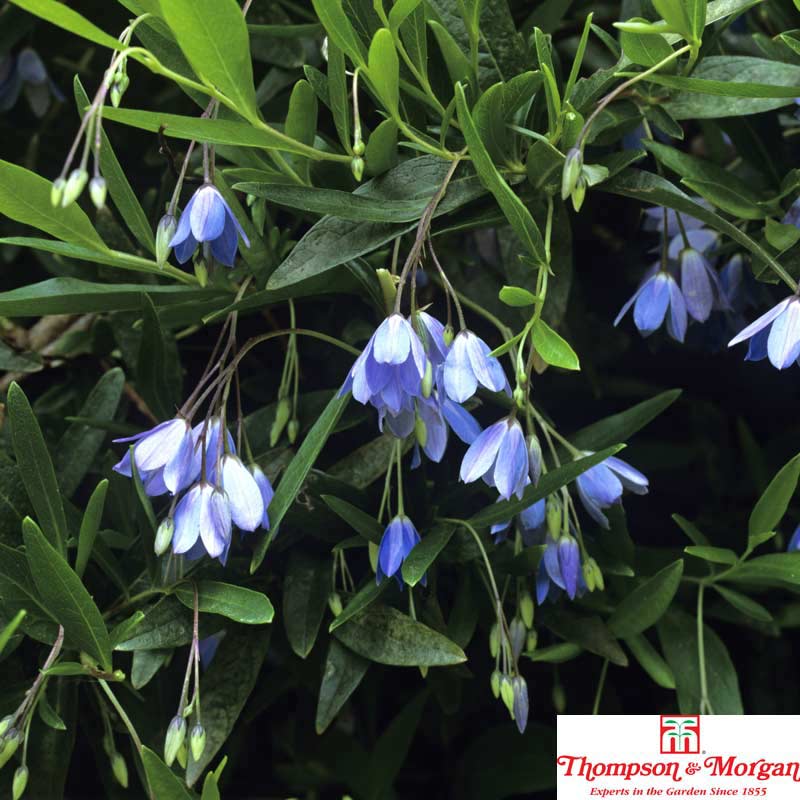
Thompson Bluebell Creeper 2 x Pots on Sale Fast Delivery
bluebell creeper An evergreen climber to 1.8m, with narrowly lance-shaped green leaves and nodding clusters of blue flowers 1.5cm across, followed by cylindrical purple berries 2.5cm in length Other common names Australian bluebell creeper Synonyms Sollya heterophylla Join the RHS Become an RHS Member today and save 25% on your first year < >
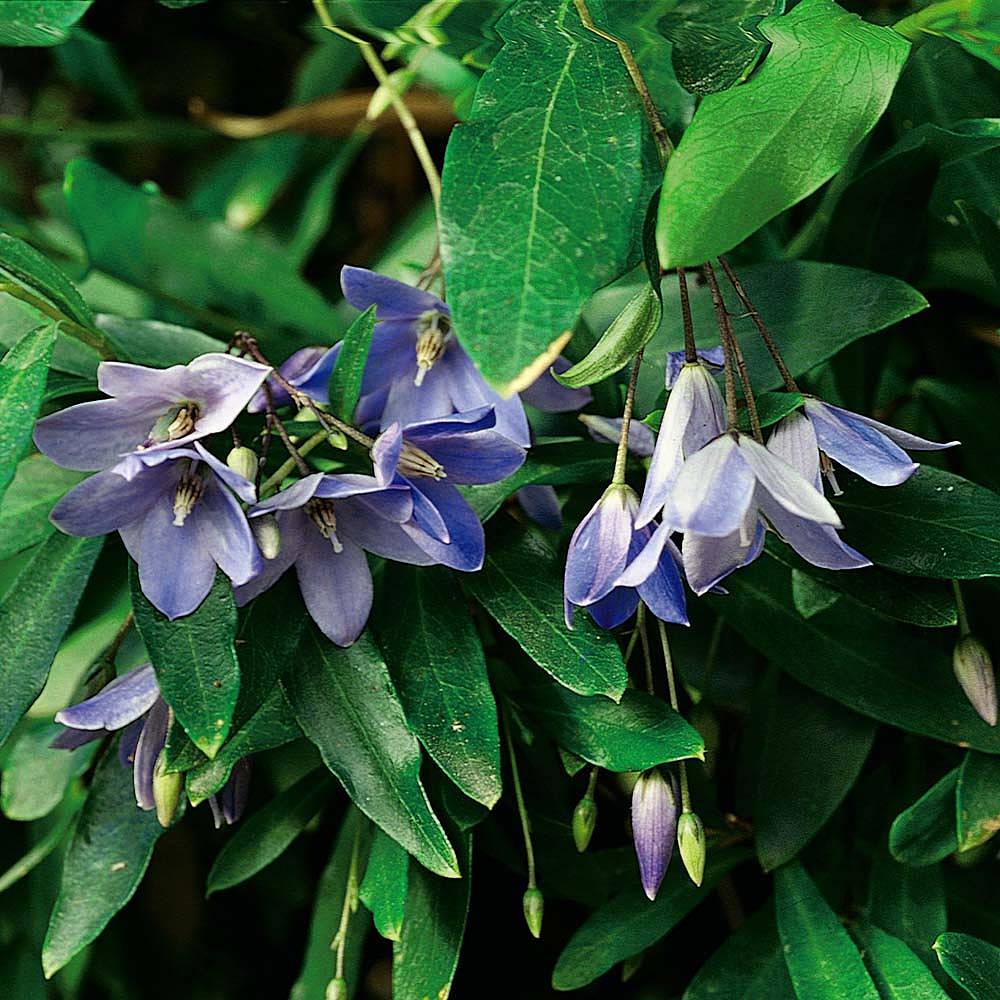
Bluebell Creeper Thompson &
Sollya heterophylla - Australian Bluebell Creeper Habit and Cultural Information Category: Shrub Family: Pittosporaceae (Pittosporums) Origin: Australia (Australasia) Evergreen: Yes Flower Color: Blue Bloomtime: Summer Synonyms: [Sollya fusiformis, Billardiera heterophylla] Height: 3-5 feet Width: 3-5 feet Exposure: Cool Sun/Light Shade
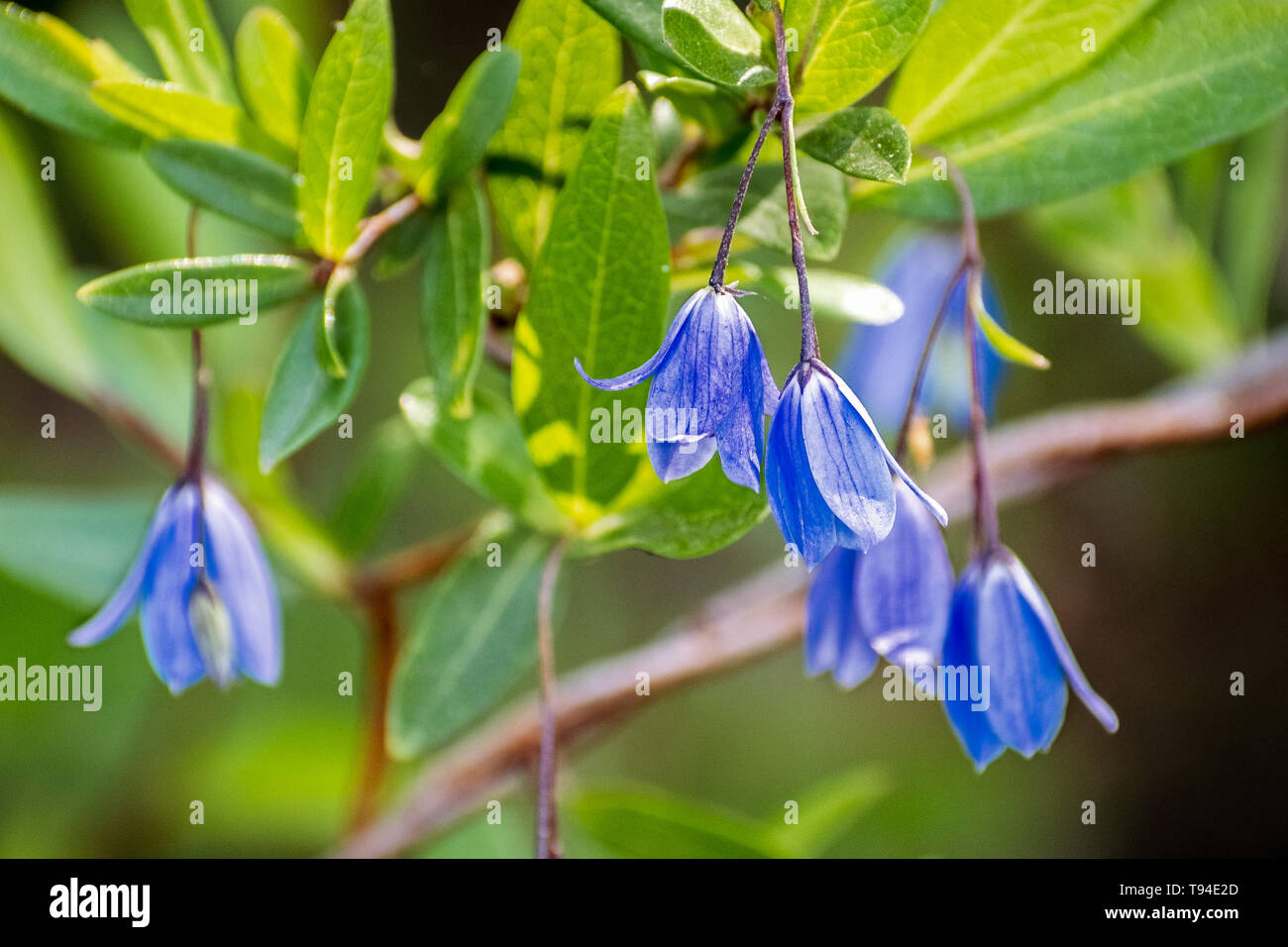
Bluebell Creeper (Billardiera heterophylla) flowers; native to Western Australia, but grown as
Sollya heterophylla ( Bluebell Creeper ) (Plant width:undetermined) Busy, twining, evergreen climber with weak stems. Leaves are oblong to oval and medium to dark green on top, paler green beneath. Bell-shaped, single, blue flowers bloom from early summer to fall. Flowers are followed by round blue berries. Important Info : Sometimes referred.
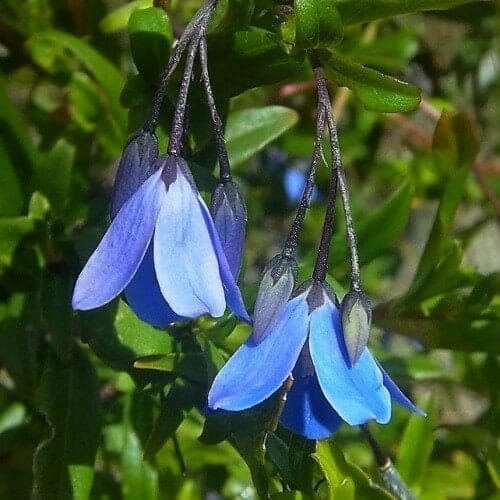
Sollya 'Bluebell Creeper' Billardiera 6" Pot Hello Hello Plants & Garden Supplies
What is Bluebell Creeper? Semi-hardy warm season plants that grow rapidly and create a screen or groundcover are hard to find. Bluebell creeper is a native to parts of Australia but has become invasive in southern Australia, Victoria, Tasmania, and certain other tropical to semi-tropical areas.